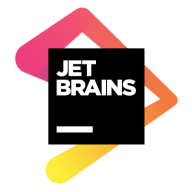

GNU Make and TeamCity operate in different but overlapping categories, with GNU Make as a build automation tool and TeamCity as a more comprehensive CI/CD platform. TeamCity tends to have the upper hand due to its advanced features that cater to extensive CI/CD needs and enterprise environments.
Features: GNU Make offers flexibility in compiling and linking projects, efficient dependency management, and the ability to use static pattern rules for source compilation. TeamCity provides extensive CI/CD pipeline automation, seamless integration with various development tools, and a robust plugin ecosystem. It supports extensive build histories and customizable dashboards, enhancing scalability and collaboration for complex projects.
Room for Improvement: GNU Make could improve with GUI options for easier user interaction and better documentation for newcomers. Adapting to modern development environments with cloud support would also be beneficial. TeamCity could improve by simplifying its complex setup process, offering more intuitive configuration options, and expanding its integration capabilities to include more third-party tools.
Ease of Deployment and Customer Service: GNU Make is straightforward to set up due to its simplicity but relies solely on community support. In contrast, TeamCity requires an initial complex configuration, which is mitigated by its thorough documentation and dedicated customer support, making it more suitable for enterprises needing reliable service.
Pricing and ROI: GNU Make is free, making it a cost-effective option for small projects with low overheads. TeamCity, however, requires a licensing fee that may be prohibitive for smaller teams but offers a higher ROI for enterprises by enhancing development efficiency and speeding up time-to-market through its full automation capabilities.
| Product | Market Share (%) |
|---|---|
| TeamCity | 5.8% |
| GNU Make | 1.7% |
| Other | 92.5% |
| Company Size | Count |
|---|---|
| Small Business | 11 |
| Midsize Enterprise | 4 |
| Large Enterprise | 15 |
TeamCity is a Continuous Integration and Deployment server that provides out-of-the-box continuous unit testing, code quality analysis, and early reporting on build problems. A simple installation process lets you deploy TeamCity and start improving your release management practices in a matter of minutes. TeamCity supports Java, .NET and Ruby development and integrates perfectly with major IDEs, version control systems, and issue tracking systems.
We monitor all Build Automation reviews to prevent fraudulent reviews and keep review quality high. We do not post reviews by company employees or direct competitors. We validate each review for authenticity via cross-reference with LinkedIn, and personal follow-up with the reviewer when necessary.